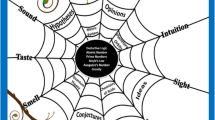Abstract
Before learning to diagnose, medical students have already studied various medical foundation courses, obtained theoretical knowledge and practiced skills of inquiry and physical examination. These are particularly important for clinical diagnosis; but such knowledge and skills alone are insufficient. Medical students must learn and apply the methods of clinical reasoning, and they must study clinical knowledge on diseases of different systems in the human body thoroughly. If theoretic knowledge is likened to a walking stick for students, just having the stick is not enough: they must be taught on how to use the stick, guided to take correct paths and directions and instructed on how to apply such knowledge and skills with scientific reasoning in clinical diagnosis. Only by doing so can such knowledge and skills truly work. With the rapid progress of medical technologies, new diagnostic technologies keep emerging, but the importance of clinical reasoning by the doctor will not fade. It is irreplaceable.
You have full access to this open access chapter, Download chapter PDF
Similar content being viewed by others
Before learning to diagnose, medical students have already studied various medical foundation courses, obtained theoretical knowledge and practiced skills of inquiry and physical examination. These are particularly important for clinical diagnosis; but such knowledge and skills alone are insufficient. Medical students must learn and apply the methods of clinical reasoning, and they must study clinical knowledge on diseases of different systems in the human body thoroughly. If theoretic knowledge is likened to a walking stick for students, just having the stick is not enough: they must be taught on how to use the stick, guided to take correct paths and directions and instructed on how to apply such knowledge and skills with scientific reasoning in clinical diagnosis. Only by doing so can such knowledge and skills truly work. With the rapid progress of medical technologies, new diagnostic technologies keep emerging, but the importance of clinical reasoning by the doctor will not fade. It is irreplaceable.
Author information
Authors and Affiliations
Editor information
Editors and Affiliations
Rights and permissions
Copyright information
© 2020 Springer Nature Singapore Pte Ltd. and People's Medical Publishing House
About this chapter
Cite this chapter
Wan, X., Zeng, R. (2020). The Importance of Clinical Reasoning. In: Wan, XH., Zeng, R. (eds) Handbook of Clinical Diagnostics. Springer, Singapore. https://doi.org/10.1007/978-981-13-7677-1_69
Download citation
DOI: https://doi.org/10.1007/978-981-13-7677-1_69
Published:
Publisher Name: Springer, Singapore
Print ISBN: 978-981-13-7676-4
Online ISBN: 978-981-13-7677-1
eBook Packages: MedicineMedicine (R0)




